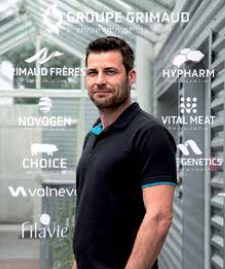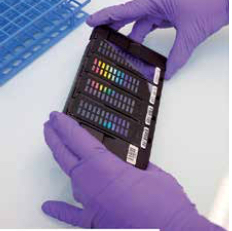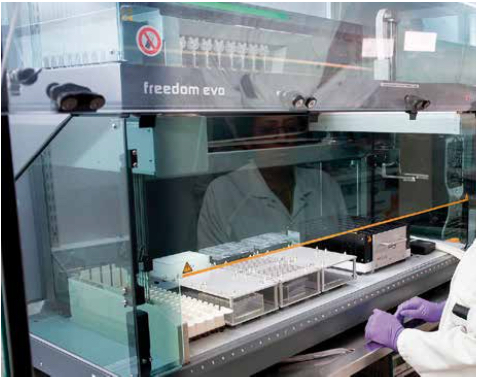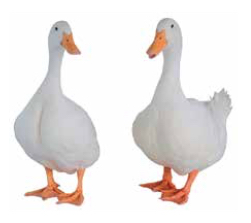Group GriMaud has begun using genomic selection to improve all-around duck performance, making it the first breeding company to apply a range of new, cutting-edge technologies in duck selection.

Although Group Grimaud has applied advanced genomic selection tools for layer hens and hogs for many years, it finally decided to apply the technology to accelerate duck genetics development to make duck meat more competitive.
Yann Le Pottier, general manager, said despite the hefty investment, which is over 200,000 euros/pedigree line/year, Group Grimaud is committed to the program to further the interests of its clients and the duck industry.
First implemented in April of 2021 for pedigree-tier ducks, the effects of the selection program will cascade to the parent stock level in 2023. By 2024, improvements in broiler ducks will start to be seen.

Guillaume Le Mignon, Grimaud’s geneticist in charge of Pekin duck selection, said the technology is expected to accelerate genetic gains by around 5-10% per year compared with traditional selection methods that are unable to exploit molecular-level information.
Given the current wide variability among ducks even of the same line and breed, the technology can double the pace of genetic progress within 10 years, said Mr Le Mignon.
An algorithm is created to analyze big data generated from RFID chips, CT scanners and connected sensors to predict the characteristics of the offspring of selected animals. Genomic selection adds a vital complementary piece of information to existing data sets.
The genetic characteristics of each subject makes it possible to assign a genomic value to each individual. The selection process then becomes more precise, efficient and faster and reduces genetic interval. Therefore, geneticists can identify future champions from a very young age.

A tissue sample from the duck is placed on a plate which is then isolated. DNA is extracted and placed on an SNP chip to read 60,000 markers of DNA sequences, leading to an unprecedented level of precise knowledge of each individual. The molecular selection process allows geneticists to precisely select ducks that are naturally more resistant to diseases, have better physical composition, feed efficiency, growth performance, higher net yield and superior health.

The effort will build on Grimaud’s latest Peking duck product, Star 53 Medium, which has already been improved substantially, especially in terms of robust growth and meat quality.
Star 53 Medium is a fast-growing bird capable of reaching 3.39 kg in just 42 days, with better breast meat yield at earlier stages. With the best verified-in- the-field feed efficiency, it also offers a very robust and easy-to-manage breeding female.
Nhac Van Bui, CEO of Grimaud Vietnam, said that in Vietnam, the new product is a game changer. The Star 53 medium and heavy both fit well with customer preferences where they prefer fast-growing and heavier birds.
“The Star 53 can grow up to 3.4-3.5 kg in less than 43 days. It has lower FCR and less mortality compared with its predecessors. This has brought Grimaud back as the leading brand, capturing 75-80% of the meat type duck market in Vietnam,” he said.

John Houston, CEO of Pepe Duck based in Australia, said the Star 53 medium has received good market acceptance and is now gaining top market share. On the breeder side, Star 53 yields exemplary egg shell quality and good hatchablity. Average hatch on set is 88.6%, hatch on transfer 94.1%, and performance has continued to improve.
Mortality is around 2.4 at the broiler farm which is the best by far compared with the rest of the world. Feed conversion is about 2.01 and looks set to do better which gives huge savings.
“The good growth rate of the duck suits our market,” he said.
Its strong body, legs and feet stability makes it a much better commercial duck. Also, it yields good meat, fat and skin quality, which is driving steady growth in market share for Grimaud ducks in Australia, he added.
Group Grimaud has also launched “WEEZYOU,” a service platform offering personalized support such as tutorials which cover biosecurity and farm management – egg collection, vaccine administration, insemination, diagnostic tools, and news from the sector. More importantly, users can also consult with the group’s experts.
